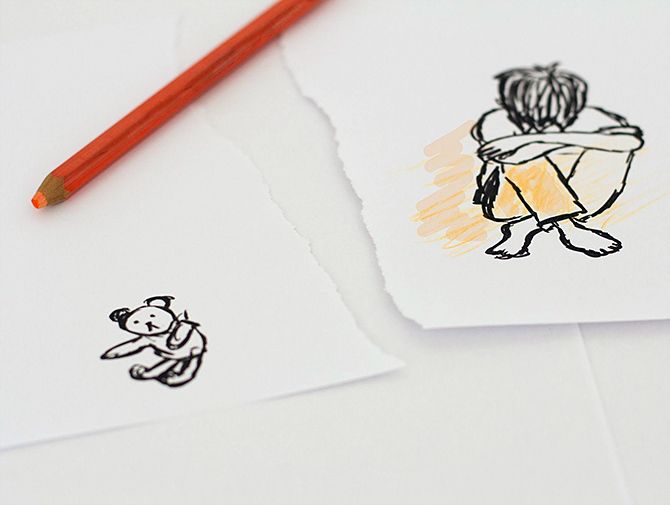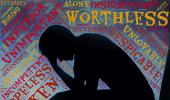Class 10 to NEET, student suicides expose flaws in result-oriented education system.

Photograph: Kind courtesy Andreasfuchs8732/Pixabay.com
Unable to come to terms with the news that she had failed the CBSE Class 10 examinations, 16-year-old Khushboo slit her wrists and hung herself from the ceiling of her Delhi home last week, underscoring yet again the gravity of the student suicide crisis in the country.
In this season of results and marks, Khushboo, a student of Delhi's School of Open Learning, is not the only one who opted out of the fiercely competitive arena of the Indian education system.
Two others in Delhi itself, Rohit Kumar Meena, 17, and Pragya Pandey, 15, ended their lives too, allegedly because they were unhappy with their Class 10 marks.
Earlier this week, more young lives were lost when at least four medical aspirants across India, two in Tamil Nadu, one in Delhi and one in Hyderabad, reportedly committed suicide after the NEET exam results were declared.
Another young man hung himself in Delhi because he was not permitted to take the Union Public Service Commission preliminary examination as he was late.
The spate of student suicides highlights a crisis that cuts across the boundaries of class and age, exposing the flaws in the education-exam-result system and the inability to empathise with those who may fall below the bar imposed on them.
From students giving their first major board exam to those older, the ignominy with which poor grades are viewed and the burden of not being able to cope with the competition is taking a massive toll, said parents, counsellors and educators.
Left to deal with the reality that she will never see her daughter again, Khushboo's mother Sonia, who irons clothes for a living, has been stunned into silence.
'There is nothing left for me to say. I have nothing to say,' Sonia, overcome with grief, told PTI.
'Khushboo was already depressed over getting a compartment in Class 9 and after these results she was perhaps too ashamed to face her parents and took this extreme step,' added a friend of the family.
According to psychiatrists and counsellors, a celebration of efforts and not marks, is the key to helping a distraught individual in the aftermath of a poor scorecard.
'No exam can ever test all your talents,' said Mumbai-based psychiatrist Harish Shetty.
It is the "shock and shame" element of failure that drives the young to take their own lives, he said.
'For these victims, the feeling of having let down their parents is equivalent to a betrayal,' Shetty told PTI.
Even for toppers, slipping down the podium to come second, can be dreadful.
'More exams and tests will follow across years. We cannot perform at our best always. Accept all your feelings as they come. After a few days, analyze your performance and move on,' said Shetty.
Sakshi Mittal, who runs University Leap, a career counselling institute in Delhi, agreed. Mittal, a certified consultant herself, suggested the introduction of psychometric tests in schools to gauge a student's prowess versus his/her interests.
'Just because a child is fascinated by a concept in physics does not mean he will fare well at the subject,' she explained.
Putting the onus on parents and schools, Mittal said she finds the delegation of streams based on marks in schools absurd.
'It contributes to the notion that commerce and humanities are for weak students. Parents make their children's careers a prestige issue.
'They concentrate on a single weakness, and refuse to see the child's strengths,' Mittal said.
She added that flawed career decisions taken at an early stage in life often lead to confusion later, particularly at the postgraduate level.
For Delhi's Rewa Bhagat, who took her Class 12 exams this year, the board exams were not as much of a challenge as the competitive exams she is now gearing up for.
'I did not work very hard for my boards.
'My focus is on clearing the entrance examinations, and it is when you prepare for these tests that you realise the problem of India being one of the most populated countries. It is frustrating and exhausting,' Bhagat, who aspires to be a lawyer, said.
She added that having parents who accept her failures as well as her success, and teachers who offer useful guidance has helped her keep "never-ending" stress at bay.
Stories of how stress was affecting students terrified Mumbai-based Swati Dasgupta, pushing her to ensure that her daughter continued the extracurricular activities she loved during the Class 10 exam and that she always stood by her.
'As parents our objective was to stand by our child no matter what her result was,' Dasgupta said.
Dasgupta talks about a fellow set of parents in the same residential complex, who haven't come out since result day because their child hasn't performed as well as they expected.
'Even the child has not left the house since the results,' she said.
According to Shetty families must follow a 'no shame, no blame' philosophy. 'If one gets over 90 per cent, he/she is not a hero, and if one gets 40 per cent, he/she is not a zero. Life is still a long way ahead,' he said. It's a message that needs to travel far and wide.












